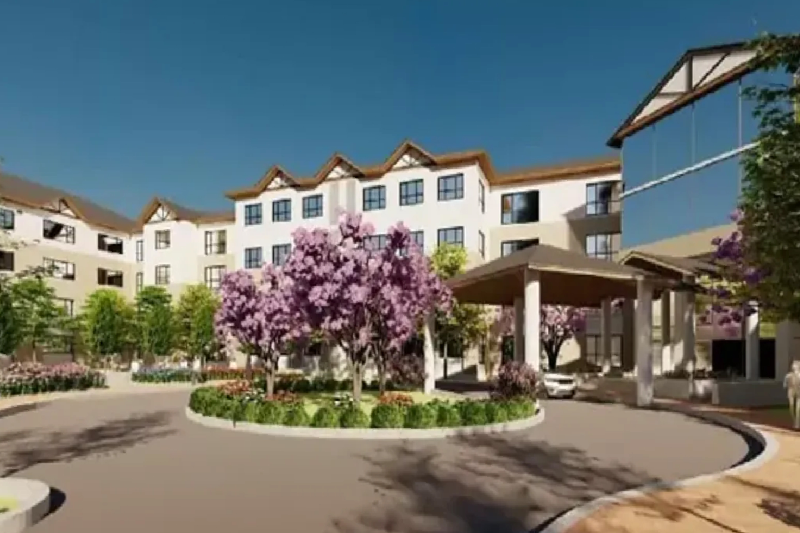
GMC Handwara Gets Approval for 24 DNB Seats Across 7 Departments, Highest in J&K for 2025
In a major boost to medical education and healthcare delivery in Jammu and Kashmir, Government Medical College (GMC) Handwara has secured approval for 24 Diplomate of National Board (DNB) seats across seven core clinical and non-clinical departments. The approval, which has been granted by the National Board of Examinations in Medical Sciences (NBEMS), marks a significant step forward for the institution and the region, especially considering GMC Handwara’s remote, borderland location.
DNB Seats Across Seven Departments
The approved DNB seats are distributed as follows:
- Medicine – 5 seats
- Surgery – 2 seats
- Paediatrics – 5 seats
- Pathology – 4 seats
- Pharmacology – 2 seats
- Social and Preventive Medicine (SPM) – 2 seats
- Anaesthesia – 4 seats
This allocation represents the highest number of DNB seat approvals in Jammu & Kashmir for the year 2025, according to officials.
The development follows months of detailed inspections and assessments by NBEMS, which evaluated the infrastructure, faculty strength, and clinical workload of the institution before granting permission.
“We have been working on this for nearly six months,” said Dr. Aijaz Ahmad, Medical Superintendent of GMC Handwara, speaking to Daily Excelsior. “The process was rigorous, but final approval has now been received, and we are expecting further expansions in the near future.”
More Approvals Expected Soon
In addition to the approved DNB programs, the college is expecting approvals for diploma courses in several specialities. These include:
- Gynaecology
- Anaesthesia
- Paediatrics
- Radiology
Dr. Aijaz Ahmad confirmed that assessors have already visited GMC Handwara for these diploma programs, and final approvals are likely to be granted within the next four weeks.
Further, inspections for DNB seats in Emergency Medicine and Family Medicine have also been completed, but the assessments are still under review. If approved, these additions will further expand the college’s postgraduate training capacity, enabling more departments to offer PG courses and increasing the overall number of seats available to medical graduates.
Approval Valid for Four Years
The NBEMS approval for the DNB seats is valid for a period of four years, i.e., until 2029. During this period, GMC Handwara will be able to admit eligible medical graduates into these specialized training programs annually, based on national merit and selection through standardized examinations.
Officials highlighted that this approval is a milestone for GMC Handwara, particularly because of the college’s location in a border and far-off area of Kupwara district. The institution has steadily grown in capacity and infrastructure since its inception, and the introduction of postgraduate courses signifies a new chapter in its academic and service journey.
Academic and Healthcare Impact
The launch of DNB courses is expected to have far-reaching academic and healthcare benefits. Officials emphasized that the availability of PG seats will attract medical graduates from across the country, thereby increasing the availability of trained doctors in the region.
“This is a game-changer for our healthcare setup. The presence of PG students will not only enhance academic standards but also significantly improve patient care,” officials noted.
Since DNB trainees are actively involved in clinical duties under supervision, their presence will directly contribute to strengthening the manpower at the hospital. This is particularly critical for GMC Handwara, which caters to a large population in a geographically challenging and underserved region.
The influx of postgraduate students and the eventual expansion of departments will also encourage skill development among local medical graduates, creating a sustainable pipeline of trained specialists who are more likely to serve in peripheral areas.
What is the DNB Program?
The Diplomate of National Board (DNB) is a postgraduate medical qualification awarded by the National Board of Examinations in Medical Sciences (NBEMS), an autonomous body under the Ministry of Health and Family Welfare, Government of India. It is considered equivalent to MD/MS and DM/MCh degrees awarded by medical universities and is fully recognized by the National Medical Commission (NMC).
The DNB program plays a vital role in standardizing postgraduate medical education, especially in institutions outside traditional university systems, including those located in tier-2 cities, rural areas, and underserved districts.
Through rigorous training, structured curriculum, and centralised assessments, the DNB aims to:
- Improve the quality of specialist medical training
- Enhance the capacity of institutions to deliver tertiary care
- Bring equitable access to advanced healthcare in peripheral and border areas
GMC Handwara’s inclusion in the list of DNB institutions reflects its growing capacity and readiness to participate in this national initiative.
A Landmark Achievement for a Remote Region
The approval of 24 DNB seats is being hailed as a “landmark achievement” by health officials, educators, and local leaders alike. Given the remote location of GMC Handwara in the Kupwara district, which borders Pakistan-occupied Kashmir, the enhancement of its academic and clinical capabilities sends a strong signal about the government’s commitment to healthcare equity.
Officials reiterated that the launch of PG courses will attract top medical talent, encourage knowledge exchange, and improve the referral system and specialist availability in the district and nearby areas.
“It’s not just about academics. These PG students will live, train, and serve in this area. That will make a real difference to the health outcomes of people living here,” an official remarked.
Conclusion:
The approval of 24 DNB seats at GMC Handwara marks a major milestone in the development of medical education and healthcare services in Jammu and Kashmir. As the highest approval for 2025 in the UT, this move not only strengthens the academic standing of the institution but also addresses the critical healthcare needs of a remote and underserved population.
With more diploma approvals on the horizon and additional DNB departments under review, GMC Handwara is poised to become a hub of postgraduate medical training and a model for healthcare development in border areas. The journey ahead promises stronger infrastructure, better patient care, and a new generation of specialists ready to serve where they are most needed.


